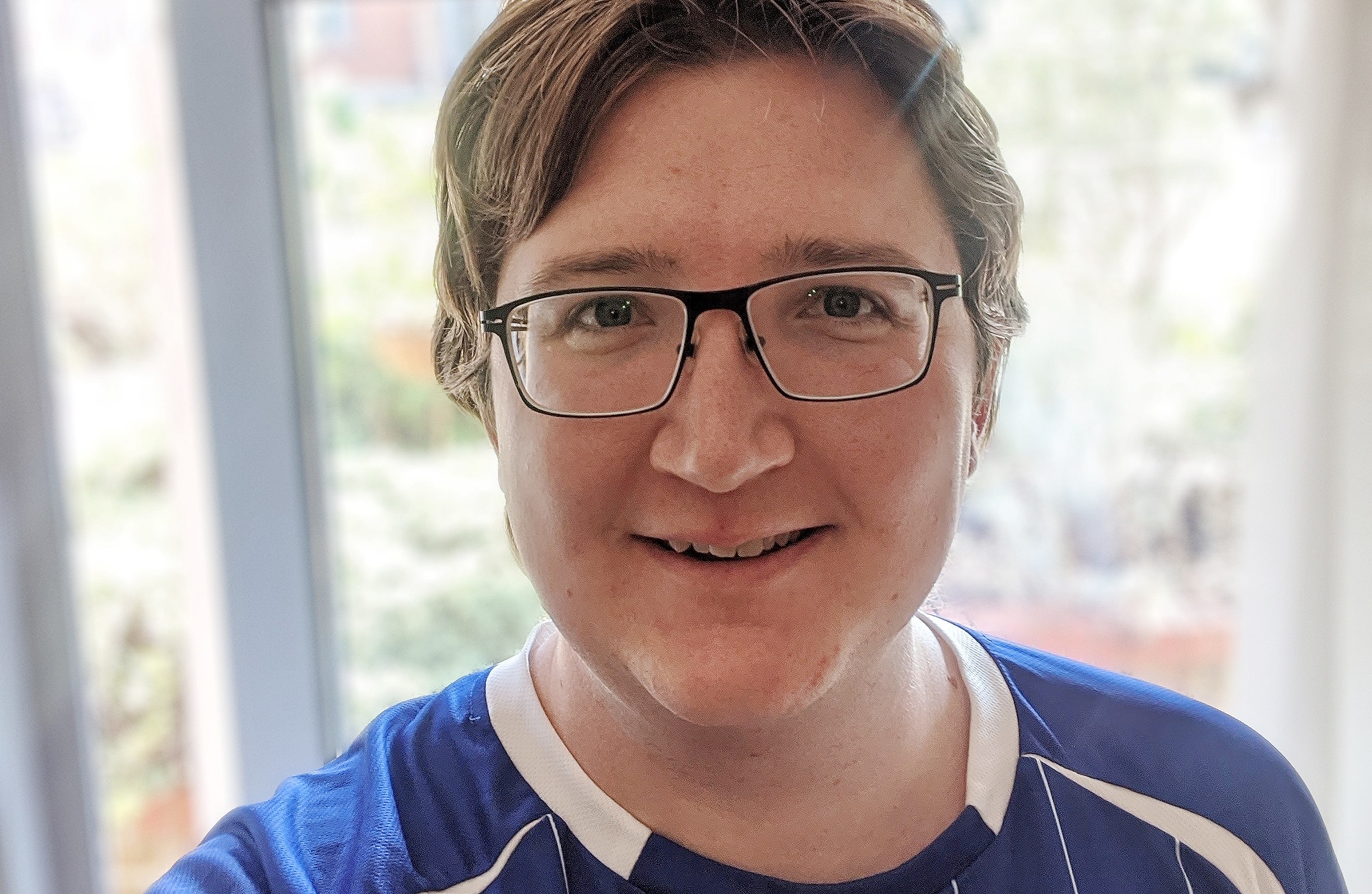How do I win Fantasy Football?
Wednesday 2nd Dec 2020, 11.53am
Did you know that the winner of the 2019/2020 Fantasy Premier League, beating over 7 million other players, was Dr Joshua Bull – a researcher at Oxford’s Mathematical Institute? How did he win? Turns out that ‘mathematical thinking’ and a strategic approach, combined with “gut instinct and a healthy dose of good luck” might just be the answer! Could you be next year’s winner? Join us as Joshua shares his tips!
Emily Elias: If you don’t play fantasy football, I guarantee somebody you love does. It’s the ultimate spectator sport where you build your own team from the best in the league and then you get points based on how good they do. I know, it sounds kind of nerdy, right? But there is a lot of pride at stake. On this episode of the Oxford Sparks Big Questions podcast, we are tackling the Premier League and we are asking, “How do I win fantasy football?”
Hello, I’m Emily Elias and this is the show where we seek out the brightest minds at the University of Oxford and we ask them the big questions. For this one, we are talking to the reigning 2019/2020 Fantasy Premier League champion.
Joshua Bull: I’m Joshua Bull. I’m a researcher in mathematical biology at the University of Oxford.
Emily: You are also the fantasy football guy, right?
Joshua: I am indeed, yes. It’s my biggest life achievement. Forget about the PhDs, it’s all about the fantasy football. (Laughter)
Emily: So how did you get into this?
Joshua: Well, purely by chance really. So my family has a league that we compete in, and that’s been running for years now. I normally make a team at the start of the season and then forget about it, but last year I decided I wanted to try and finally beat the rest of my family at the game. So I started taking it seriously, and, yes, that worked well.
Emily: You became the all-out champion of the English Premier League Fantasy Football league for 2019/2020. I mean, how big is this competition? How many people did you beat for this title?
Joshua: So there were about 7.5 million people playing last year.
Emily: So you must have beaten some pretty big names?
Joshua: The nearest, kind of, famous competition was from Magnus Carlsen, who is the world chess champion, and he also is very into fantasy football. I think he finished 10th or 11th.
Emily: How did it feel to squash him?
Joshua: It felt great. I’m never going to beat him at chess, so it’s nice to say that I’ve beaten him at something. (Laughter)
Emily: So what was the big winning prize?
Joshua: So the main prize is VIP tickets to a couple of Premier League games, but obviously I won’t be able to go to them until we’re allowing fans back into the stadiums, but that’s something to look forward to.
Emily: Temporarily, I guess, the biggest prize that you have would be a GIF?
Joshua: Yes, so the biggest prize really is the bragging rights. So I get to say that the Premier League made a GIF about me and it says that I beat everyone, which is quite nice.
Emily: So obviously you are a mathematician by trade. Did it give you an advantage at all when you were making up your team and taking on fantasy football?
Joshua: I wasn’t explicitly doing any maths or solving any equations or anything like that to try to make my team, but I think that thinking mathematically is a kind of thought pattern that you develop. So having very logical thought structures and looking at the game as a strategy game, as a problem to be solved, rather than as a kind of football problem, I think was a big advantage.
Emily: So you didn’t have a big fancy computer programme. You didn’t have a massive spreadsheet?
Joshua: No, indeed, just my strategic thoughts and my gut instincts and a healthy dose of good luck.
Emily: On top of your good luck, you have some knowledge in mathematical modelling. Can you break that down for me? What does that mean when you’re applying it to fantasy football?
Joshua: So I did some modelling after the fact, but it’s something which you could use to build a team. So I was quite curious to see whether I’d followed optimal strategies or not. So, for me, mathematical modelling is a tool that we use to try and understand the world. So it’s not about just trying to look at some numbers and trying to see which statistics are the best. It’s about trying to understand systems. So in my normal research I look at biological systems and we try to write down equations which describe the behaviour of something, how different physical things are interacting, but you can do exactly the same thing in fantasy football.
So the actual game itself is composed of lots of different ways of scoring points, and some of those might be more or less important than others. So with mathematical modelling you can compare these different strategies and really try and quantify what the most important thing to do is.
Emily: So let’s get into it. Josh is the current holder of the title and GIF. So what are the keys to the winner’s GIF without using a spreadsheet? Well, Josh says the first key to victory is picking a captain.
Joshua: I think that picking a captain is a really important mechanism, and it’s a nice one that we can analyse mathematically from the start. For those that don’t know the game, every week you get to choose one of your players to score double the normal number of points, but there are a whole load of different ways that you could make that decision. So do I choose someone who’s in good form? Do I choose someone who’s got a nice fixture coming up? Do I choose someone who’s at home or is away? We can simulate all of these different possibilities and really try and find out which of those strategies is most important.
So what I found is that the best player to pick is somebody who has an easy fixture coming up, but is a top player or a premium player. Really, the reason for that is because in the short-term, when you choose your captain, you’re only choosing them for one week. So it turns out that it’s less important whether they’ve had a run of scoring lots of points recently and actually more important whether they’ve got the chance to do that again this particular week. So although confidence does come into it, mathematically speaking, it looks like a more solid option to just go for the people with an easy fixture.
Emily: Okay, so you’ve picked your captain. Josh’s second key to the winner’s GIF without using a spreadsheet is playing the long game.
Joshua: Yes, so having just said that captain picks are important in the very short term, just thinking about one week, actually most of your players are going to sit in your team for quite a long time, and you don’t want to be spending points every week trying to change your entire team. So really you want to pick players that are going to be able to sit there for a long time. So at that point it becomes much more important to think about how good a player they are as opposed to whether they have an easy fixture or not.
So trying to make transfers with a view on bringing people into your team that can stay there for a long time and you don’t need to worry about them becomes much more important when you look at the big picture. There’s a very important fallacy called the gambler’s fallacy, which is to do with randomness. So if you think about flipping a coin, whether you get a head or a tail is a random event, it’s a 50/50 chance, but what people get tempted to do is say if you flip a coin ten times and it always comes up heads, the gambler’s fallacy is essentially thinking that that has an effect on what the next coin toss will be.
So to say, “Well, okay, I know that in the long run I’m expecting to get 50% tails, so I must be due a tail, I haven’t had a tail for a while,” whereas actually the odds are completely unchanged by the fact that you’ve just flipped ten heads. Equally, there’s something called the hot-hand fallacy, which essentially says the opposite. “That player’s scored in every game so far, so they must keep going.” That’s the equivalent of saying, “I’ve just flipped ten heads. Maybe I’ll flip another one next. Great,” whereas, actually, you have to look at it a bit more dispassionately and say, “Actually, this probability isn’t influenced by what’s just happened.”
I should say that there are lots of fantasy football managers that will completely disagree with that, but for me I think it’s a much more powerful strategy just to choose players who are going to score you a decent number of points every week and who have the ability to do amazingly well rather than trying to constantly guess what the particular results are going to be in any particular week.
Emily: Tip number three: avoid glory-hunting. Josh says just because you’ve got the big six, Man City, Man United, Tottenham, Liverpool, Chelsea, and Arsenal with their big budgets, that doesn’t mean they are always going to have the best players to pick.
Joshua: As a general rule, the players from the big six teams will probably do better than other players, but you can’t just rely on them. You need to find people from the smaller teams that are further down the table but are going to be a great bargain. So someone like Nick Pope might have been that last year, who’s Burnley’s goalkeeper. Burnley aren’t going to finish top of the table, but equally, having some of their players that are able to score you lots of points without necessarily being a big name in football is going to be important.
Emily: And the final key to victory and that precious winner’s GIF: luck.
Joshua: I would be lying if I said that I wasn’t very, very lucky last season. I think there are a few different sources of variance within the game. One of them is just going to be which players perform on a given day. It may be that you’ve chosen brilliant players and that they were great picks at the time, but they just don’t perform. So, in order to be the number one, you have to get lucky with those picks as well. You have to choose good players but you also need them to perform, and you don’t have any control over that.
Emily: So let’s be real, 2020/2021 fantasy league football season, how are you doing?
Joshua: I’m letting everybody else get a bit of a head-start this season, just because I didn’t want to make it too easy for myself. So I’ve kind of let everybody else get ahead of me, about a million people or so, and I’m just waiting to overtake them again over the next few weeks. It’s all part of the long-term strategy.
Emily: Do you think a repeat title could be in the future?
Joshua: I’d say there’s about a 1-in-7 million chance.
Emily: So you’ve got a chance?
Joshua: (Laughter) There’s always a chance.
Emily: This podcast was brought to you by Oxford Sparks from the University of Oxford, with some music by John Lyons, and a special thanks to Josh Bull. If you want to spend some more time with Josh, he’s got a podcast, check out Research on the Rocks, a place for researchers to unpack their ideas and unwind over a cocktail. Check it out on your favourite podcasting app, and if you want to check out what we’re doing you can find us on our usual social media handles @OxfordSparks, or by going to our website oxfordsparks.ox.ac.uk. I am Emily Elias. Bye for now.





